
The beautiful journey of pregnancy can be rightly described as a rollercoaster ride, where not almost every day is sunny. Certain complications during pregnancy can be troublesome for expecting mothers. They can potentially pose risks to both the mother and the fetus.
There are numerous issues that a woman can face during pregnancy. Some of the common ones are listed in the article below. Understanding these common complications is crucial for managing the potential risks and ensuring a healthy pregnancy outcome.
What Is a Pregnancy Complication?
Pregnancy complications are health issues that arise during, or are related to, pregnancy. Most of the complications resolve after pregnancy, but some fatal ones can lead to lifelong morbidity or even maternal and fetal mortality [1]. It is estimated that around 15% of all pregnant women in the world develop a life-threatening complication that requires some form of life-saving intervention [2]. Attending all prenatal appointments can help in detecting all potential pregnancy complications. Sometimes pre-existing medical conditions can result in complications of pregnancy.
What Causes Complications During Pregnancy?

A number of reasons contribute to the development of complications during pregnancy. Some of the causes are:
- Pre-existing medical conditions: Some medical issues are present in a pregnant woman before the pregnancy. Diabetes, Hypertension and disorders of the thyroid gland can impact or worsen pregnancy complications [3].
- Lifestyle factors: Habits such as smoking, alcohol consumption and drug abuse can lead to pregnancy complications [4].
- Infections: Certain infections are more common in pregnancy due to a weak immune system. A pregnant woman is more prone to urinary tract infections, sexually transmitted infections, etc. that can complicate a pregnancy [5].
- Maternal age: Advancing age can increase complications for both the mother and the baby.
- Pre-existing medical conditions: History of complications in a previous pregnancy can potentially cause similar complications in the subsequent pregnancies.
10 Most Common Pregnancy Complications
Most pregnancies go smoothly and have healthy outcomes. Although, there can be a few hurdles in the form of certain complications, some of the commonly known issues in pregnancy are listed below:
1. Gestational Diabetes
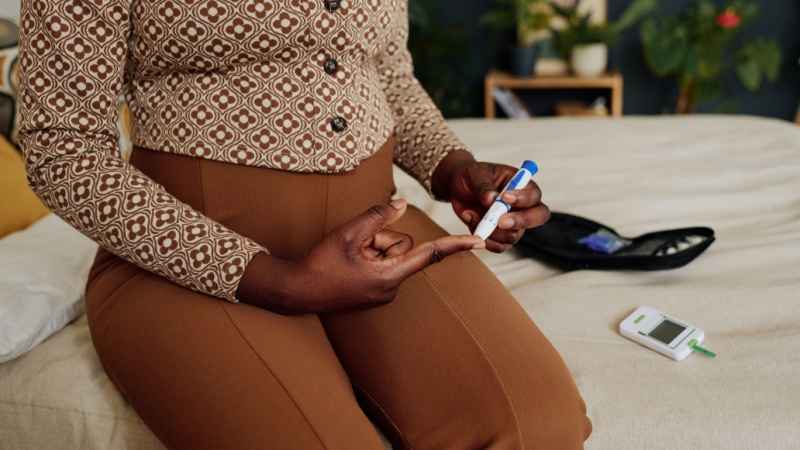
Gestational Diabetes is a type of diabetes that develops exclusively during pregnancy is referred to as Gestational Diabetes [6]. It usually appears between weeks 24-28 of pregnancy or during routine screening for diabetes. This happens due to insulin resistance because of the hormones produced by the placenta.
High blood sugar can cause the following complications in the mother:
- Preeclampsia
- Chances of a Cesarean section
- Type 2 diabetes in the future.
Risks to the baby are:
- Macrosomia [7].
- Hypoglycemia
- Breathing difficulties
- Premature birth
2. Gestational Hypertension
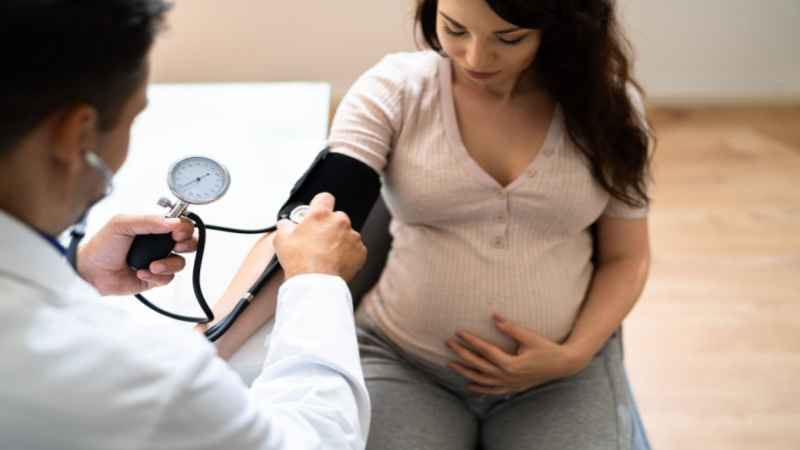
Gestational Hypertension, also known as Pregnancy-induced Hypertension, is the condition where a pregnant woman develops a new hypertension after 20 weeks of pregnancy without any signs of preeclampsia [8]. Here, blood pressure is above 140/90 on two separate occasions at least 6 hours apart [9].
Common complications in mother include:
- Stroke
- Seizures
- Liver issues
- Need for a C-section
Risks to the baby include:
- Preterm birth
- Low birth weight
- Stillbirth.
3. Ectopic Pregnancy
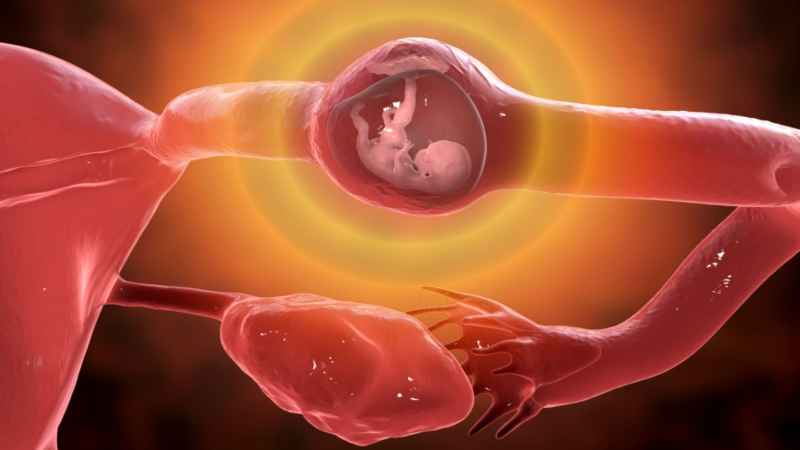
A pregnancy that happens anywhere outside the uterus is called an ectopic pregnancy [10]. The most common site of an ectopic is the fallopian tubes. Other sites are the ovaries, cervix and abdominal cavity. It ultimately leads to the loss of the pregnancy and can even result in life-threatening complications if a rupture occurs. A ruptured ectopic pregnancy can result in severe bleeding, infection, and even death. Hence, it is an emergency medical condition that requires prompt management [11].
4. Preeclampsia
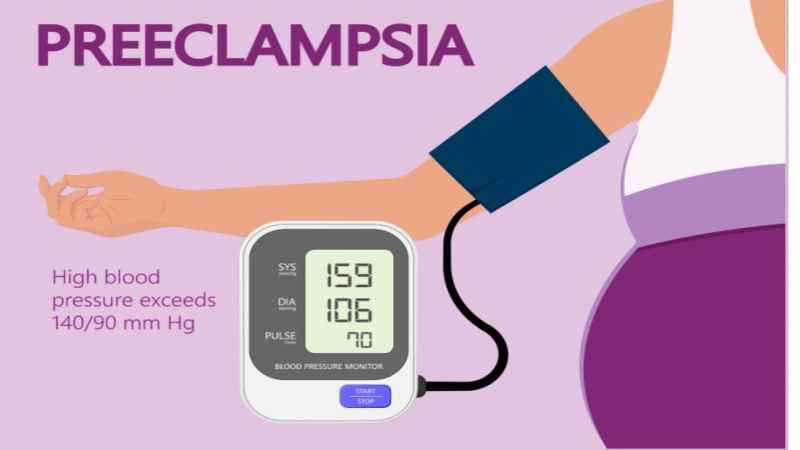
Preeclampsia is a serious complication of pregnancy due to high blood pressure and high levels of protein in the urine [12]. It mostly develops after 20 weeks of pregnancy.
Complications for pregnant women are:
- Kidney and liver damage
- Stroke
- Seizures
- HELLP Syndrome
The risks to the fetus are:
- Low birth weight
- Premature birth
- Fetal growth restriction
5. Hypothyroidism

Hypothyroidism is quite common in pregnancy and results from inadequate production of thyroid hormone. The levels of thyroid hormone change due to the levels of hCG and estrogen hormones [13].
If left untreated, it can lead to further problems, like:
- Preeclampsia
- Maternal anemia
- Preterm birth
- Developmental and cognitive delays in the baby.
6. Anemia
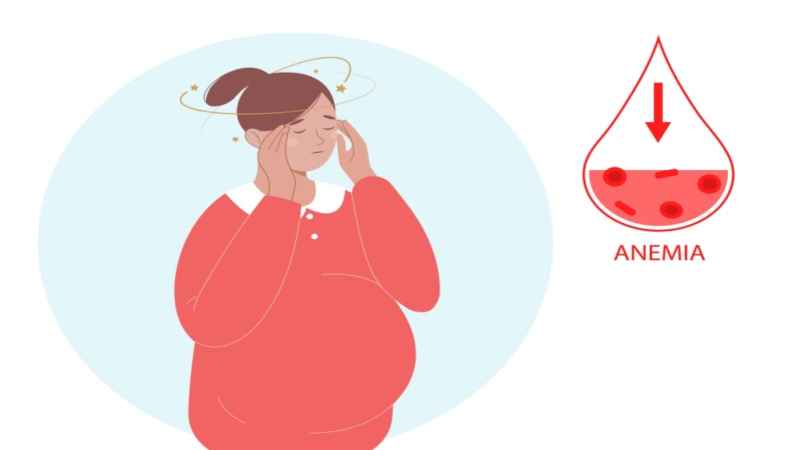
Anemia during pregnancy is quite common and mostly results from iron deficiency, owing to an increase in demand for iron [14]. An increase in blood volume in pregnancy requires more iron for RBCs. It can affect the growth of the developing fetus, especially during the first trimester. Untreated anemia can cause low birth weight and developmental delays in the baby.
7. Intrauterine Growth Restriction
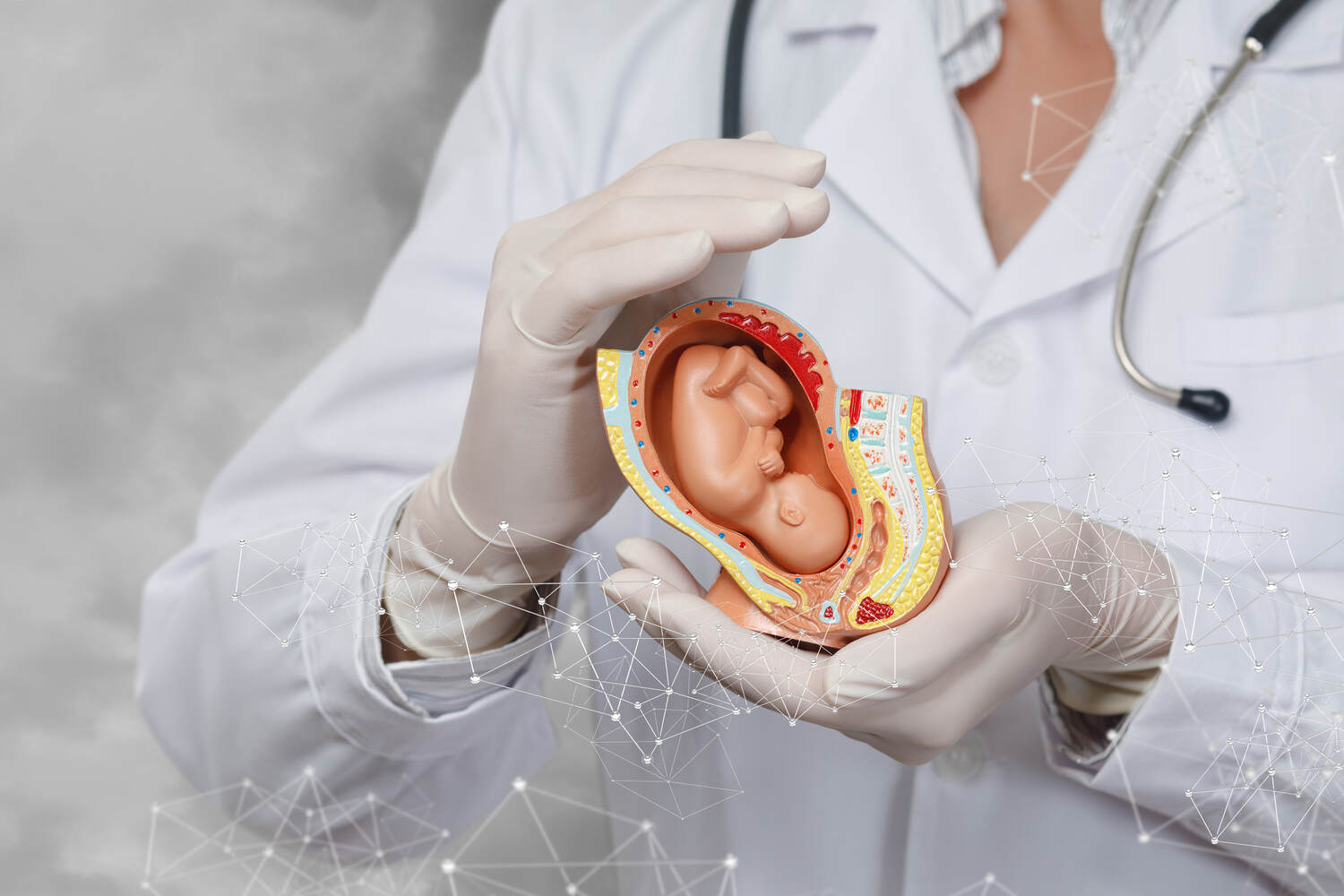
Intrauterine growth restrictions (IUGR) refer to the condition when the fetal weight is below the tenth percentile of its gestational age [15]. It happens in almost 5% of all pregnancies [16]. IUGR is most likely due to issues with the umbilical cord or the placenta. Maternal high blood pressure and diabetes also contribute to a development of IUGR in the baby.
8. Infections
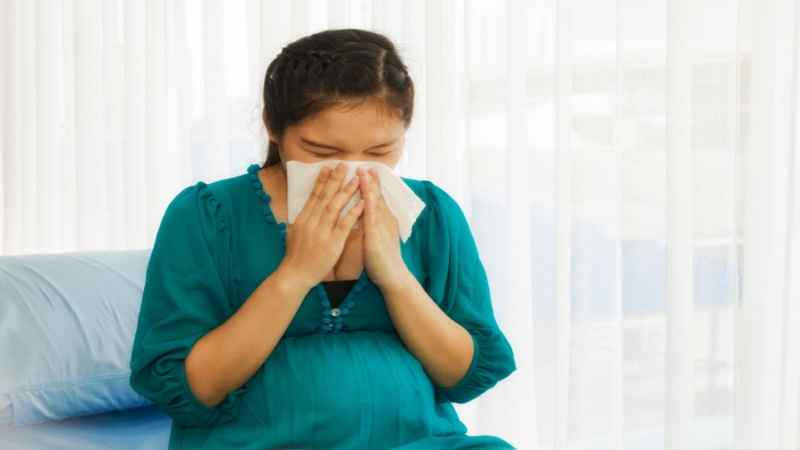
Infections during pregnancy are quite common owing to the weakened immune system [17]. Certain infections of the skin, urinary tract infections or common cold do not affect the pregnancy much. But, some infections can be really dangerous during pregnancy and can lead to complications like preterm birth, birth defects, low birth weight, hearing loss and developmental disabilities.
9. Postpartum hemorrhage
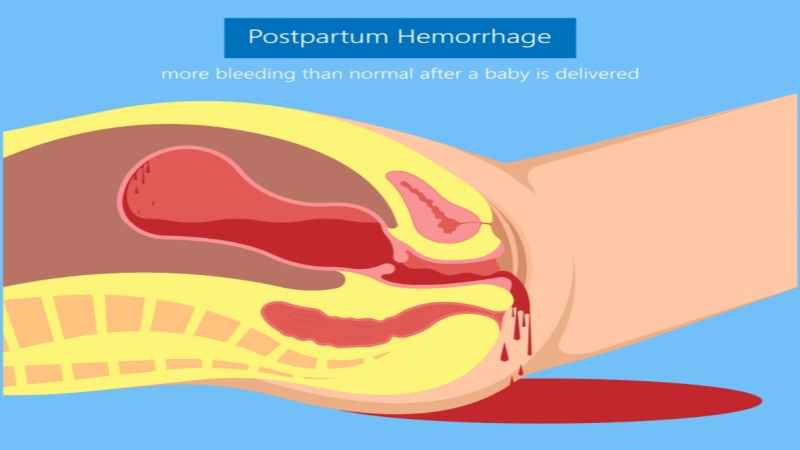
Postpartum hemorrhage (PPH) is the heavy bleeding that happens after childbirth. It’s a common complication of pregnancy and usually occurs within a day after birth [18]. It can lead to immense blood loss, causing significant changes in blood pressure, ultimately causing shock and even death. Known cases of placenta previa and placental abruption are at risk of PPH.
10. Preterm labor
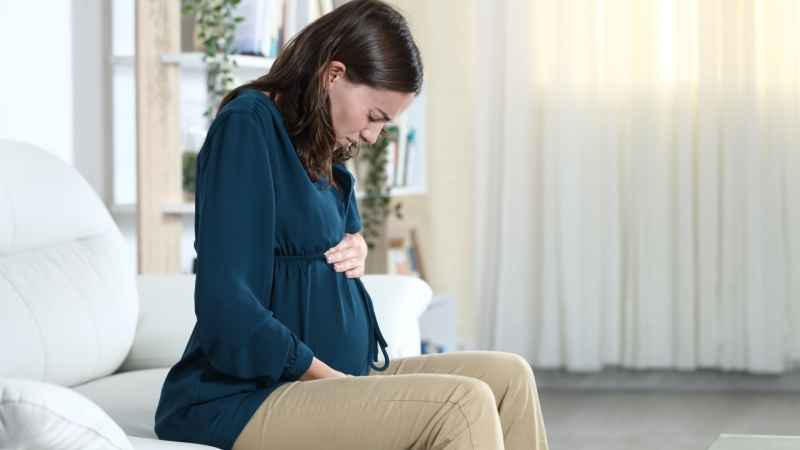
It is a condition in which labor begins before 37 weeks of pregnancy [19]. Common signs are contractions of the uterus and breaking of membranes, leading to water breaking. It results in premature birth of the baby and usually results due to preeclampsia, abruption of placenta and fetal growth restriction.
Who Is At Risk For Pregnancy Complications?
Certain factors can increase the risk of developing complications during pregnancy. Few of them are:
- High blood sugar levels before pregnancy can cause gestational diabetes, Macrosomia, etc.
- High blood pressure before pregnancy can increase the risk of developing preeclampsia.
- Epilepsy can cause preterm labor and birth defects in the baby of an epileptic mother [20].
- Advanced maternal age.
- Being pregnant with twins or triplets can potentially cause premature labor, fetal growth restriction, etc [21].
- Chronic smoker and history of alcohol consumption.
- History of complications in a previous pregnancy.
How Do I Prevent Pregnancy Complications?

You can lower the risk of developing a few pregnancy complications by following some useful strategies like:
- Maintaining a healthy weight before trying to conceive [22].
- Quit smoking and alcohol consumption before getting pregnant.
- All necessary vaccinations must be taken before trying to get pregnant
- Make sure that you attend all prenatal appointments.
- Consume a nutritious diet and staying hydrated.
- Regular mild to moderate exercises as advised by your doctor.
- Avoid stress and take proper rest.
- If you have any pre-existing medical condition, work with your doctor to effectively manage it.
- Prenatal vitamins and other important medicines as your doctor advises must be taken regularly.
When Should I Call My Doctor?
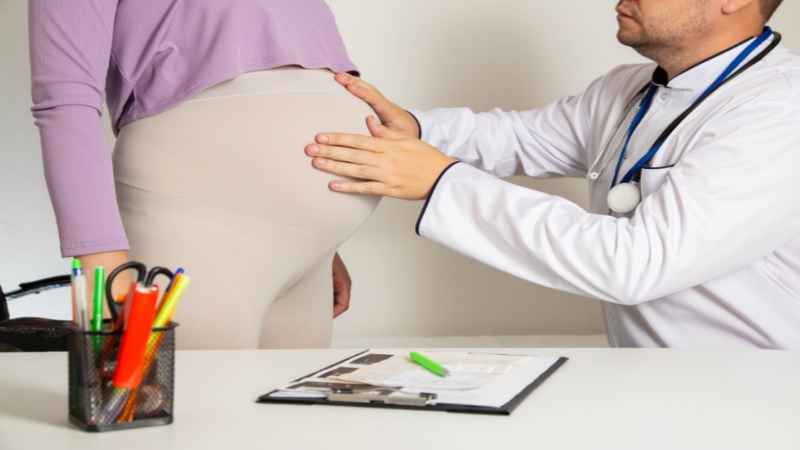
If you witness any of the following symptoms, then call your doctor right away:
- Heavy vaginal bleeding or unusual discharge.
- Cramping or severe pain in the abdomen
- Severe headache [23].
- Blurring of vision.
- Sudden or severe swelling of the hands, feet and face.
- Persistent vomiting
- Dizziness
- Feeling less fetal movements
- Fever and chills
- Shortness of breath or chest pain
So, it is necessary to monitor and report any unusual symptoms during pregnancy. Regular prenatal visits and undergoing all important ultrasounds and tests play a vital role in addressing the complications of pregnancy. Make sure that you discuss all the problems with your doctor, as early detection and intervention are the keys to lessening the risks. Stay healthy and enjoy the beautiful journey.
FAQ’s
1. What Are The Most Common Pregnancy Complications In India?
Anemia, intrauterine growth retardation and gestational diabetes are some of the very common pregnancy complications prevalent in India.
2. When Do Most Pregnancy Complications Start?
Most of the issues in pregnancy start in the first trimester. Ectopic pregnancy, miscarriage, hyperemesis gravidarum, etc. most often happen during the early weeks of pregnancy.
3. What Is The Medical Term For Complications Of Pregnancy?
The medical term for the complications of pregnancy is “Obstetric Complications.” They include a wide range of issues during pregnancy, ranging from Gestational diabetes to preterm labor.
References
- L. Say, R.C. Pattinson, in International Encyclopedia of Public Health, 2008 – https://www.sciencedirect.com/topics/medicine-and-dentistry/complication-of-childbirth
- Managing complications in pregnancy and childbirth-Highlights from the World Health Organization’s 2017 Second Edition – https://www.who.int/publications/i/item/WHO-MCA-17.02#
- Lee SI, Hope H, O’Reilly D, Kent L, Santorelli G, Subramanian A, Moss N, Azcoaga-Lorenzo A, Fagbamigbe AF, Nelson-Piercy C, Yau C, McCowan C, Kennedy JI, Phillips K, Singh M, Mhereeg M, Cockburn N, Brocklehurst P, Plachcinski R, Riley RD, Thangaratinam S, Brophy S, Hemali Sudasinghe SPB, Agrawal U, Vowles Z, Abel KM, Nirantharakumar K, Black M, Eastwood KA; MuM-PreDiCT. Maternal and child outcomes for pregnant women with pre-existing multiple long-term conditions: protocol for an observational study in the UK – https://www.ncbi.nlm.nih.gov/pmc/articles/PMC9972454/
- Produced in consultation with and approved by Department of Health, Victoria State Government – https://www.betterhealth.vic.gov.au/health/healthyliving/pregnancy-and-smoking
- Pregnancy, Birth And Baby – Urinary tract infections (UTIs) during pregnancy – https://www.google.com/amp/s/www.pregnancybirthbaby.org.au/amp/article/urinary-tract-infections-utis-during-pregnancy
- Quintanilla Rodriguez BS, Vadakekut ES, Mahdy H. Gestational Diabetes. [Updated 2024 Jul 14] – https://www.ncbi.nlm.nih.gov/books/NBK545196/
- Bernea EG, Uyy E, Mihai DA, Ceausu I, Ionescu-Tirgoviste C, Suica VI, Ivan L, Antohe F. New born macrosomia in gestational diabetes mellitus – https://www.ncbi.nlm.nih.gov/pmc/articles/PMC9634345/
- Gudeta TA, Regassa TM. Pregnancy Induced Hypertension and Associated Factors among Women Attending Delivery Service at Mizan-Tepi University Teaching Hospital, Tepi General Hospital and Gebretsadik Shawo Hospital, Southwest, Ethiopia – https://www.ncbi.nlm.nih.gov/pmc/articles/PMC6341446/
- Compiled using information from: Medscape; Hypertension and Pregnancy; Preeclampsia Foundation, and Mayo Clinic –
https://americanpregnancy.org/healthy-pregnancy/pregnancy-complications/preeclampsia/ - American College of Obstetricians and Gynecologists – https://www.acog.org/advocacy/facts-are-important/understanding-ectopic-pregnancy
- Keche AS, V P, Js S. Sudden Death Due to Rupture of Ectopic Pregnancy in a Young Lactating Mother. Cureus. 2023 Jan 10;15(1):e33598. – https://www.ncbi.nlm.nih.gov/pmc/articles/PMC9910823/
- Medically Reviewed by Jabeen Begum, MD on September 01, 2023 – https://www.webmd.com/baby/what-is-preeclampsia
- Alemu A, Terefe B, Abebe M, Biadgo B. Thyroid hormone dysfunction during pregnancy: A review. Int J Reprod Biomed. – https://www.ncbi.nlm.nih.gov/pmc/articles/PMC5153572/#
- Allison L Fisher, Elizabeta Nemeth, Iron homeostasis during pregnancy†‡, The American Journal of Clinical Nutrition, Volume 106, Supplement 6, 2017, Pages 1567S-1574S – https://www.sciencedirect.com/science/article/pii/S0002916522027253
- STANFORD MEDICINE CHILDREN’S HEALTH , Fetal Growth Restriction – https://www.stanfordchildrens.org/en/topic/default?id=fetal-growth-restriction-90-P02462
- DAVID PELEG, M.D., COLLEEN M. KENNEDY, M.D., AND STEPHEN K. HUNTER, M.D., PH.D. – https://www.aafp.org/pubs/afp/issues/1998/0801/p453.html
- Kumar M, Saadaoui M, Al Khodor S. Infections and Pregnancy: Effects on Maternal and Child Health. Front Cell Infect Microbiol – https://www.ncbi.nlm.nih.gov/pmc/articles/PMC9217740/
- Rani PR, Begum J. Recent Advances in the Management of Major Postpartum Haemorrhage – A Review. J Clin Diagn – https://www.ncbi.nlm.nih.gov/pmc/articles/PMC5376787/
- Edmund F Funai, MD Hospital Corporation of America – https://www.uptodate.com/contents/preterm-labor-beyond-the-basics/print
- Mayo Clinic, Epilepsy and pregnancy: What you need to know – https://www.mayoclinic.org/healthy-lifestyle/pregnancy-week-by-week/in-depth/pregnancy/art-20048417
- Brigham and Women’s Hospital, Multiple Pregnancy Complications – https://www.brighamandwomens.org/obgyn/multiples-center/complications-multiples-pregnancy#
- Department of health, Victoria State Government-Weight, fertility and pregnancy health – https://www.betterhealth.vic.gov.au/health/conditionsandtreatments/weight-fertility-and-pregnancy-health
- NHS , Headaches in pregnancy – https://www.nhs.uk/pregnancy/related-conditions/common-symptoms/headaches/#

1 Comment
Well summarized article about pregnancy complications. Gestational diabetes contributes to increased weight gain. Obesity may have an impact on the baby’s stem cells so it is necessary to take precautions and avoid weight gain. Also, if you are planning for stem cell banking service, you should let your gynecologist and obstetrician know about it well in advance so that the paramedic can come and collect the stem cells after delivery without any trouble. To know more about stem cell banking.